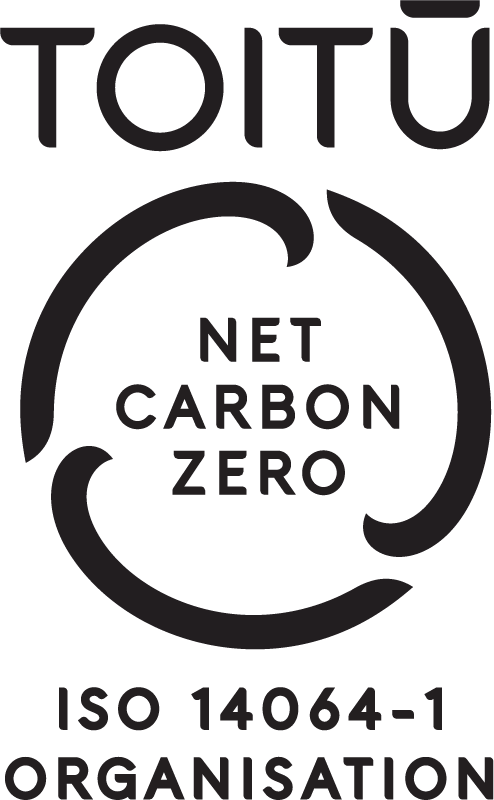
A Look Back: 2024 In Review
20 December 2024Kirsten Boldarin, Head of Distribution - Wholesale, Mint Asset Management.
2024 has certainly felt like the year of intense political drama. In the US, the events have unfolded like a Netflix miniseries. Trump convicted of felonies, Biden pulls out of the race, Trump is nearly assassinated, Elon Musk becomes buddy-in-chief, RFK Jnr is named as Health Secretary. We will get Season 2 of the show in 2025, and it is bound to be just as gripping as Season 1.
Despite all of the changes and tumult, markets thrived. In 2024, there were, in our view, two pivotal moments which supercharged the trajectory of equity markets. The first was in September, when the Fed moved to loosen US central bank rates. This signalled the taming of inflation (which peaked in the US at 9.1% back in June 2022). With inflation now running at 2.4%, and the rate hiking cycle appearing to be at an end, equity markets rejoiced. This period of lower inflation and rate reductions coincided with ongoing US economic resilience as well as Dollar strength. The rally in equities was further supported by fundamentals with strong earnings growth, particularly within the tech sector.
The second, was the election of Donald Trump in November which unleashed a further run up in stocks and the US Dollar. The driver of this has largely been the prospect of tax cuts and deregulation.
At the time of writing, the global equity market is up 22% this year. By far, the leader of the stock rally has been US equities with the S&P 500 Index up 27%. The dominance of technology stocks was unabated and a continuation on from 2023. Nvidia, the poster child of AI stocks, is up almost 167%. For domestic investors, these numbers are even more appealing in NZD terms because of the strength of the Dollar. As a Kiwi investing in the US market, on an unhedged basis, you would have gained over 39%!
Domestically, New Zealand equities made gains, but nowhere close to their international counterparts. The S&P/NZX 50 is up 9% year-to-date. The domestic economic environment has been challenging with elevated interest rates meeting fiscal tightening. Fortunately, there has been some relief on the rate front with the Reserve Bank of New Zealand cutting rates by a total of 1.25% - starting with an initial cut of 0.25% in August before ramping it up to 0.5% in October and another 0.5% in November. There is always a lag between rate cuts and the underlying economic effect, but there are reasons to start feeling a bit more cheerful. A year ago, mortgage rates were in the mid-sevens, today mid-to-high sixes and forecast to come down further. Inflation has come down significantly from 6% to close to 2%. Our export market has picked up. In August, we wrote about our more positive outlook for New Zealand equities, and we maintain this view today.
Both our Mint Australasian Equity Fund and the Mint NZ SRI Fund are ahead of their benchmarks so far this year. Within our Australasian Equity Fund, we hold Telix, an Australian biotech company which focuses on radiopharmaceuticals. It has the potential to upend the identification and treatment of cancer cells using radionuclides. It has rallied strongly this year on the back of substantial increases in reported revenue. Much of this revenue was generated from sales of Illuccix®, Telix's prostate cancer imaging product, particularly in the United States. We held a material position in the stock which helped to boost our performance.
Across both funds, we have had significant benefit from holding an overweight allocation to Fisher & Paykel Healthcare. Work done by senior analyst, Tom Deacon using data scraped from US healthcare admissions information led us to believe that the Covid/RSV season would be beneficial to FPH’s product line-up and this proved to be the case with the company reporting strong revenue growth.
We have also been assisted by our material underweight exposure to Spark and Fletcher Building. The Spark underweight comes on the back of work done by analyst Sam Arcand, identified a challenging market environment and poor cash flow generation which posed a risk to its earnings and dividend payout. This led us to take a substantive underweight position in the stock. John Middleton, portfolio manager for the Australasian Equity Fund has had a long-term negative view on Fletcher Building where the frequency of one-off items became unexceptional and left the business poorly resourced for a major housing market downturn. Not holding an allocation into the peak decline was a win for the fund on a relative basis.
The SRI Equity fund was boosted this year by its largest allocation - Infratil. Long a favourite of portfolio manager David Fyfe, we have continued to increase our exposure. While the company’s investment in Long Road solar farms in the US may face political obstacles, we have high conviction in management’s ability to deliver strong outcomes for shareholders.
Within our Diversified Funds, in particular, the Diversified Income Fund, we have managed our duration positioning very well. The framework developed by Ryan Falls, senior analyst in the team saw us holding a high duration in NZ bonds, in particular at the short end (i.e. a beneficial position if interest rates fell) ahead of the announcements of rate cuts by the Reserve Bank of New Zealand. We subsequently reduced duration exposure over August and September as the market moved to price in our view. By the beginning of October, we were neutral, and we went tactically underweight duration in October just before the Trump election boosted growth expectations and yields. We don’t think Ryan could have called it better!
In our Diversified Growth Fund, our significant allocation to US equities gave us strong returns but given its broader level of stock diversification struggled against indices which are increasingly concentrated in only a handful of tech names. This has been a common complaint of active managers. However, a tactical overweight allocation to equities has bolstered performance and we believe that if the soft landing we anticipate continues, the US equity rally will broaden and deepen, allowing us to generate relative outperformance.
On the Responsible Investing side, Rachel Tinkler, Head of Responsible Investment at Mint and co-chair of RIAA’s Aotearoa collaborative working group, was instrumental in spearheading a letter to government outlining the investment industry’s expectations of Modern Slavery legislation. Progress has been achieved on this front with a group of leading human rights advocates releasing a report on how NZ can combat trafficking and modern slavery, and this report includes a Modern Slavery Bill. We look forward to seeing further progress in terms of its possible adoption in the coming months.
We are also pleased to note that Mint’s Australasian Equity Fund achieved certification, and Mint’s NZ SRI Equity Fund received the Sustainable Plus classification under RIAA’s new classifications initiative. In addition, Mint Asset Management was recognised as a RIAA Responsible Investment Leader for 2024.
We have recently released our first Climate Report. Whilst Mint is not captured by the regime, our Climate Report, which has been produced on a voluntary basis, provides an overview of how we assess climate risk and the processes we have in place to manage these risks.
We continue to grow and enhance our engagement activities and link this with our voting record. We disclose a great deal of information on our Responsible Investment activities on our website. Feel free to take a look!
In 2024, we continued our support of Trees that Count and The Starship Foundation. Trees that Count is a charity that plants native trees across Aotearoa. Our allocation this year will be focused on projects in the Bay of Plenty. We also dropped off some Christmas gifts for the children of Starship.
We wish you all a peaceful end to the year and a wonderful summer break. Thank you for your ongoing support of Mint Asset Management. We will write to you again in January with our 2025 Outlook – it is sure to be an exciting and interesting year!
Ngā mihi,
The Mint Asset Management Team
All quoted performance data was accurate at the time of writing (18 Dec 2024), and sourced from Bloomberg. Global Equity refers to the MSCI All Country World Index. All index performances are Total Return performances.
Disclaimer: Kirsten Boldarin is Head of Distribution at Mint Asset Management Limited. The above article is intended to provide information and does not purport to give investment advice.
Mint Asset Management is the issuer of the Mint Asset Management Funds. Download a copy of the product disclosure statement here.


